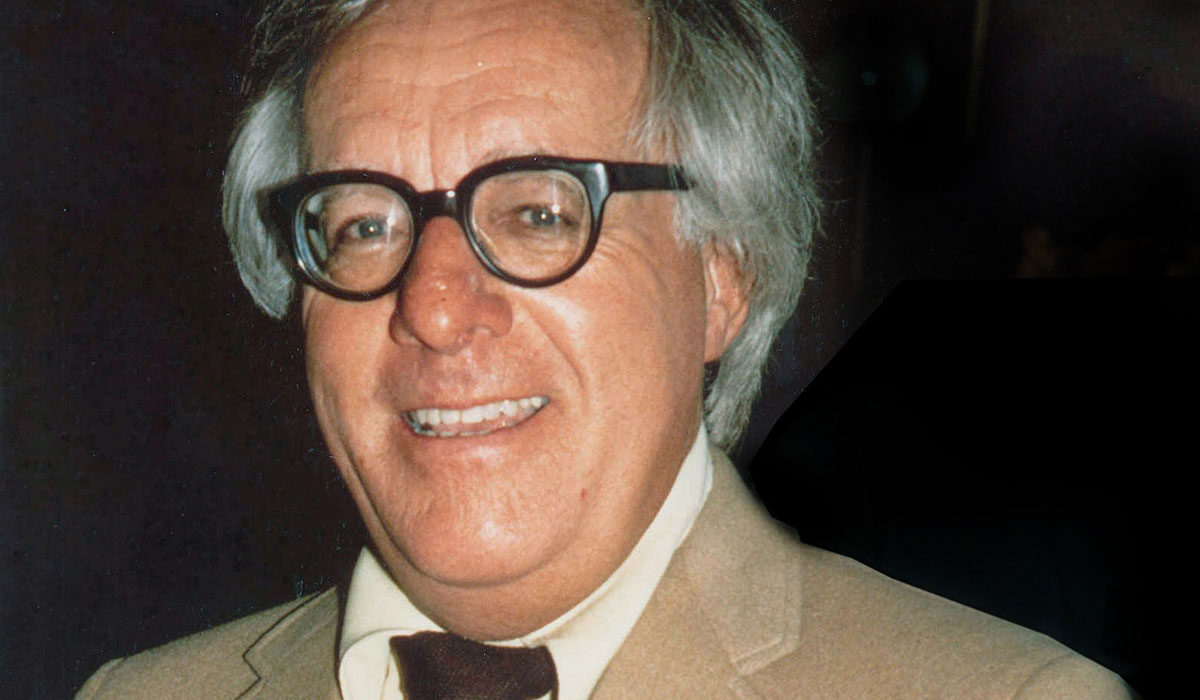


Welcome to the weekend!
I hope you are warm and well. This past week saw me in a rented Chevy Malibu, easing along a frozen river through a snowstorm on the Menominee Reservation. The lack of other vehicles on the road implied a deficit of wisdom on my part, as a two-hour trip became five hours. But, hey, that noble American-made machine got me back to the balmy climes of southern Wisconsin.
Chevrolet: Better than walking.
Speaking of alleged smarts, today’s short is Ray Bradbury’s “There Will Come Soft Rains.” It’s brief, profound, and will make you look sideways at your programmable coffee pot.
Bradbury writes:
In the living room the voice-clock sang, Tick-tock, seven o’clock, time to get up, time to get up, seven o’clock! as if it were afraid nobody would. The morning house lay empty. The clock ticked on, repeating and repeating its sounds into the emptiness. Seven-nine, breakfast time, seven-nine!
In the kitchen the breakfast stove gave a hissing sigh and ejected from its warm interior eight pieces of perfectly browned toast, eight eggs sunnyside up, sixteen slices of bacon, two coffees, and two cool glasses of milk.
“Today is August 4, 2026,” said a second voice from the kitchen ceiling, “in the city of Allendale, California.” It repeated the date three times for memory’s sake. “Today is Mr. Featherstone’s birthday. Today is the anniversary of Tilita’s marriage. Insurance is payable, as are the water, gas, and light bills.”
Somewhere in the walls, relays clicked, memory tapes glided under electric eyes.
Eight-one, tick-tock, eight-one o’clock, off to school, off to work, run, run, eight-one! But no doors slammed, no carpets took the soft tread of rubber heels. It was raining outside. The weather box on the front door sang quietly: “Rain, rain, go away; rubbers, raincoats for today . . .” And the rain tapped on the empty house, echoing.
Outside, the garage chimed and lifted its door to reveal the waiting car. After a long wait the door swung down again.
At eight-thirty the eggs were shriveled and the toast was like stone. An aluminum wedge scraped them into the sink, where hot water whiled them down a metal throat which digested and flushed them away to the distant sea. The dirty dishes were dropped into a hot washer and emerged twinkling dry.
Nine-fifteen, sang the clock, time to clean.
Out of warrens in the wall, tiny robot mice darted. The rooms were acrawl with the small cleaning animals, all rubber and metal. They thudded against chairs, whirling their mustached runners, kneading the rug nap, sucking gently at hidden dust. Then, like mysterious invaders, they popped into their burrows. Their pink electric eye faded. The house was clean.
Ten o’clock. The sun came out from behind the rain. The house stood alone in a city of rubble and ashes. This was the one house left standing. At night the ruined city gave off a radioactive glow which could be seen for miles.
Ten-fifteen. The garden sprinklers whirled up in golden founts, filling the soft morning air with scatterings of brightness. The water pelted windowpanes, running down the charred west side where the house had been burned evenly free of its white paint. The entire west face of the house was black, save for five places. Here the silhouette1 in paint of a man mowing a lawn. Here, as in a photograph, a woman bent to pick flowers. Still farther over, their images burned on wood in one titanic instant, a small boy, hands flung into the air; higher up, the image of a thrown ball, and opposite him a girl, hand raised to catch a ball which never came down.
The five spots of paint—the man, the woman, the children, the ball—remained. The rest was a thin charcoaled layer.
The gentle sprinkler rain filled the garden with falling light.
You can read the rest here.
(If you missed Jack Butler’s magazine piece celebrating Bradbury’s body of work, it’s well worth a read.)
Something splendid this way comes from “Rains”: its treatment of the works of man. Even the seemingly immortal machines we build — contraptions subservient to our whims and intelligence that can operate without our input — will disappear in time, much faster than one would expect, even.
There’s this idea from the utopianists among us, many of them progressives, that technology will undergird the socialist state — that objects will remove the necessity for man to do and to make, and, ultimately, be answerable for anything. Scruton refuted this irrational optimism as only he could, “[Political optimists] ignore or despise the findings of experience and common sense. The millions dead or enslaved do not refute utopia, but merely give proof of the evil machinations that have stood in its way.”
There is nothing inherently wrong with technology, but with its false promises, we pick through the ruins of Babel and dream of raising her again. Man cannot save himself, even with infinite microprocessors and processes. To think of technology as anything other than a temporary salve — a way to soften the effects of the Fall — is folly; the family vaporized on the wall of their home consider the purported benefits of progress fatally unfulfilling.
Just a little more Scruton for your day, from his Soul of the World:
The doctrine of Original sin, which is contained in the story of Genesis – one of the most beautiful concentrated metaphors in existence – is about the way we human beings fall from treating each other as subjects to treating each other as objects. Love, respect and forgiveness come from that. When we treat each other as objects, then we get the concentration camps.
To borrow from Kirk, there must be properly ordered authority for ordered liberty; only then may a man know to whom he ultimately answers.
Here’s Johnny Cash:
